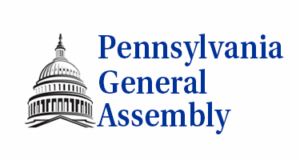The following is an update of selected state health policy developments in Pennsylvania from September 15- 19 (Some of the language used below is taken directly from state documents).
Budget Update
The state budget impasse continues, and the House and Senate did not meet in session in Harrisburg this week. Various potential budget bills are positioned to be passed within a few days of a deal being reached. This article from Spotlight PA offers insight on the issues that are still preventing a deal, even as the issue of transit funding was taken out of the mix when the governor released funding to SEPTA and other regional authorities last week. The caucuses continue to disagree on issues including the overall spending amount, welfare program reforms, school choice, and education funding.
The Senate stands in recess to the call of the President Pro Tempore and the House will return for non-voting scheduled session on Monday, September 22.
General Assembly
Although legislators are not present at the Capitol, they have circulated a number of health care-related co-sponsorship memos this week:
- Senator Michele Brooks (R), chairwoman of the House Human Services committee, issued a co-sponsorship memo about her intent to introduce a series of bills designed to strengthen Pennsylvania’s eligibility for new federal funding streams under the Rural Health Transformation Fund that was designed in the One, Big Beautiful Bill Act (OBBBA). The funding application offers states additional points in their total application score if they have adopted certain policy priorities of the Trump Administration or introduced legislation to do so.
- House Aging & Older Adult Services Committee Chairs Maureen Madden (D) and Steve Mentzer (R) have circulated a co-sponsorship memo to introduce legislation intended to help ensure Pennsylvanians are fully informed of the Living Independence for the Elderly (LIFE) as an available long-term care option.
- Senator Tim Kearney (D) circulated a memo announcing his plan to introduce a bill to create an all-payer claims database in Pennsylvania. This was an initiative in the governor’s budget proposal, which sought to allocate $4 million for the Pennsylvania Health Care Cost Containment Council (PHC4) to develop that tool.
Pennsylvania Commission on Crime and Delinquency
The Pennsylvania Commission on Crime and Delinquency (PCCD) is accepting applications for funding under the Local Hospital-based Violence Intervention Program (HVIP) Supports grant program. HVIPs are multidisciplinary programs that connect violently injured patients with trauma-informed care and long-term community supports that start at the emergency department or at the hospital bedside. Local governments should apply for this funding in collaboration with a designated provider, nonprofit organization, or institution of higher education. View the full notice of funding here. Applications are due October 30.
Department of Human Services
The Department of Human Services (DHS) issued a Provider Quick Tip to notify providers that the commonwealth’s Sterilization Consent Form (MA 31) will be issued soon with updates to reflect changes to the federal Consent for Sterilization Form (HHS-687). Stay tuned to this health policy update for an announcement of the updated form when it is released.
DHS has updated its calendar of Remittance Advice mailing dates to include October dates.
Department of Health
The Department of Health (DOH) added new training material to the Project Firstline training portal, which offers free on-demand training on infection prevention and control for all frontline workers in Pennsylvania. The new training is tailored for environmental services staff and discusses the importance of hand hygiene and the critical moments when hand hygiene matters most for these staff members. See this and more trainings and posters on the Project Firstline webpage and request free training materials through this form.
DOH issued the new income eligibility guidelines that will be used in the Special Pharmaceutical Benefits Program (SPBP) effective on October 1, 2025 for new enrollees and on the next date of renewal for any current program participants. The SPBP provides FDA-approved medications to low-income individuals living with HIV who are uninsured or have limited health care coverage. The department explained that due to the recent unprecedented increase in both program enrollment and the overall cost of medications, it is necessary for SPBP to lower the income limits as a measure to sustain the long-term viability of SPBP. Individuals that lose SPBP eligibility are encouraged to explore options on Pennie.
Around the State
- Pennsylvania has joined a consortium of northeast states to make collaborative decisions about vaccination guidance and emergency response, in the wake of changes to the Centers for Disease Control and Prevention (CDC) vaccine approval process. See details in this article by the Pennsylvania Capital Star.
- Several PA publications, including WHYY, raised the alarm this week about how 2026 costs could increase for Pennsylvanians who get their insurance coverage in the ACA marketplace unless Congress acts to expand enhanced federal tax credits. The PA Insurance Department reported that statewide average premium costs could increase by about 19 percent. The Kaiser Family Foundation has created a cost estimator tool for individuals to get personalized estimates of their costs with and without the tax credits.
Stakeholder Meetings
Medical Assistance Advisory Committee (MAAC) – Sept. 25
The DHS Medical Assistance Advisory Committee will meet virtually on September 25, 2025, at 10:00am. To register, click here.